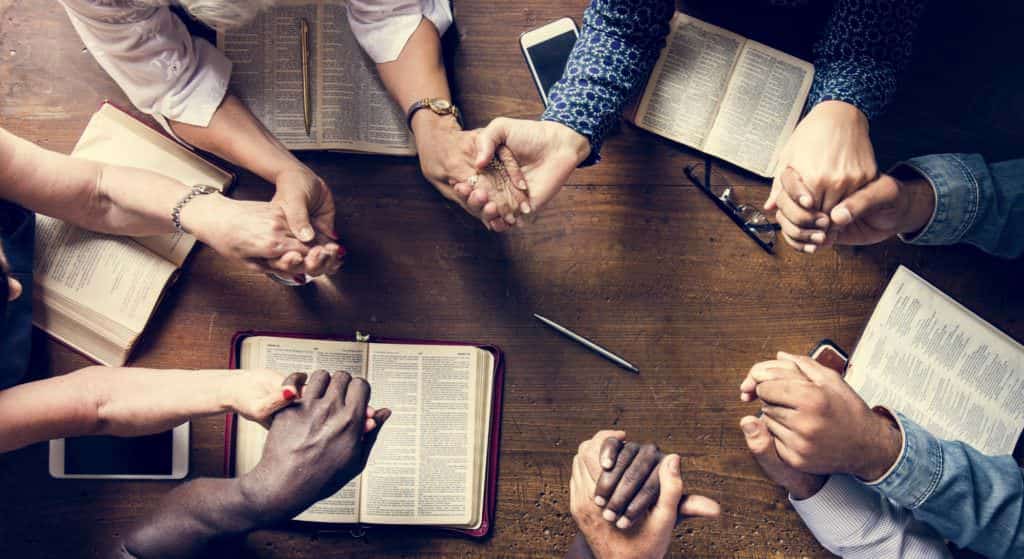Approximately 1 in 5 adults in the U.S., or 43.8 million people, experience mental illness in any given year. This staggering statistic only skims the surface of the gravity of the situation. Suicide often follows mental health issues, making it the second leading cause of death for those aged 10-34 in the U.S.
The only reasonable response to such solemn statistics is whether there is anything that can be done about it.
Thankfully, there is. In this article, you’ll learn about the benefits of religion on mental health and how it can create a positive change for the better.
Let’s begin.
Benefits of Religion
Before diving into how religion benefits mental health, it is important to define exactly what religion is.
Religion is composed of a community of people who hold similar beliefs that guides their lives and (hopefully) brings purpose and meaning.
That said, something else to note is that religion is much more complex than such a simple definition. For the sake of simplicity, we’ll use the aforementioned definition. The point remains that religion benefits mental health in numerous ways, which is something we’ll explore.
Community
The common beliefs that hold a religion together also serve the purpose of holding believers together. When these beliefs (often in a higher power) are joined with a trustworthy group of people like a church or small group, even greater benefits can be seen.
A religious community can provide support in the following ways:
- material
- moral
- emotional
- social
Since this support branches out to the basic needs of individuals, it is often effective enough to provide, at the very least, some comfort that things will turn out okay. In the context of depression, this often proves to be the case.
Material support can help individuals who need to get on their feet or who need a new piece of furniture. This is often the hardest kind of support to come by but also the most influential since it is tangible.
Moral support can come in the form of counseling services, a support group, or a support buddy (someone you can count on for help). A religious group can either provide these services themselves or connect a struggling individual to a professional who can help.
Emotional support can take the form of counseling services but can often mean having a trusted friend or pastor to talk to. Since religion goes hand in hand with the community, a church often provides a wealth of people who can serve as emotional support.
Social support and interaction can also prove to be beneficial with those suffering from anxiety and depression since they are able to temporarily forget about their problems and another who may be struggling.
While having material, moral, emotional, and social support provides meaningful benefits, religion often goes much farther than support.
Religious Framework
While the communal aspect of religion provides support, it is just as important for individuals to have a religious framework for long-term recovery.
A religious framework is composed of three main pillars. These pillars work together and as the name implies, all ultimately support each other.
1. Teachings
These provide the basic guidelines for an individual’s behavior in and outside of the community they belong to. It must be emphasized the religion is a lifestyle and not a set of timely behaviors. And as it turns out, the lifestyle changes prove to be beneficial to those struggling with mental health.
Rituals and worship are often the most powerful forms of lifestyle changes that come with religion. These can often come in the form of structure, and ultimately routine, which has been shown to be a powerful antidote to mental health issues like depression. Examples include daily devotion, prayer, and regular worship.
When religious teachings are paired with antidotes like regular devotion, prayer, and religious programming (radio, TV, literature), benefits such as comfort and healing can emerge. These often lead to positive coping mechanisms – which is something we’ll discuss.
2. Coping Mechanisms
As the name implies, a coping mechanism is how an individual responds to events that occur in their lives. For example, a negative coping mechanism would be to use alcohol to “drink your sorrows away” in the event of a friend’s death.
However, in this brief section, we will take a look at the positive coping mechanisms that religion introduces.
Prayer, one of the most powerful coping mechanisms, can connect individuals to a higher power which is always at their side. Prayer gives individuals a safe place to share their secrets, to make requests, and even to forgive others. Other positive coping mechanisms related to religion include Bible reading, religious meditation, and forgiveness.
As you might be able to see, all these coping mechanisms are related to each other. The added benefit of religious coping mechanisms is that they can be used to replace negative coping mechanisms like drinking, smoking, and drugs.
Religion can help individuals to let go of burdensome pain by forgiving others rather than holding onto guilt and pain.
Finally, religious coping mechanisms can bring much-needed comfort to individuals. For instance, those who may be depressed over a loved one’s death can receive comfort in the belief of the second coming of Jesus Christ, where loved ones can be resurrected back to life.
3. Purpose
This aspect only comes into play once an individual believes the teachings for themselves and applies them meaningfully to their lives. Then the most powerful aspect of all can fill an individual’s heart. And that is the one thing that every human being has ever and will ever crave: purpose.
This basic human need is a major reason why religion proves to be so successful in helping individuals recover from addiction, mental health, and trauma.
The Next Step
Now that we’ve taken a look at the benefits of religion on mental health, it’s time to make your decision. It may seem like an overwhelming choice to make but the reality is that it really doesn’t have to be that way.
That’s where the folks over at Northbound Treatment come in.
Their location in Orange County, California, provides services for women and men suffering from drugs and alcohol addiction, mental health, and trauma, in addition to offering long-term solutions for those who want to remain sober.
So take a leap. Give it a shot. Perhaps God’s grace and healing are what you have been needing all along.











